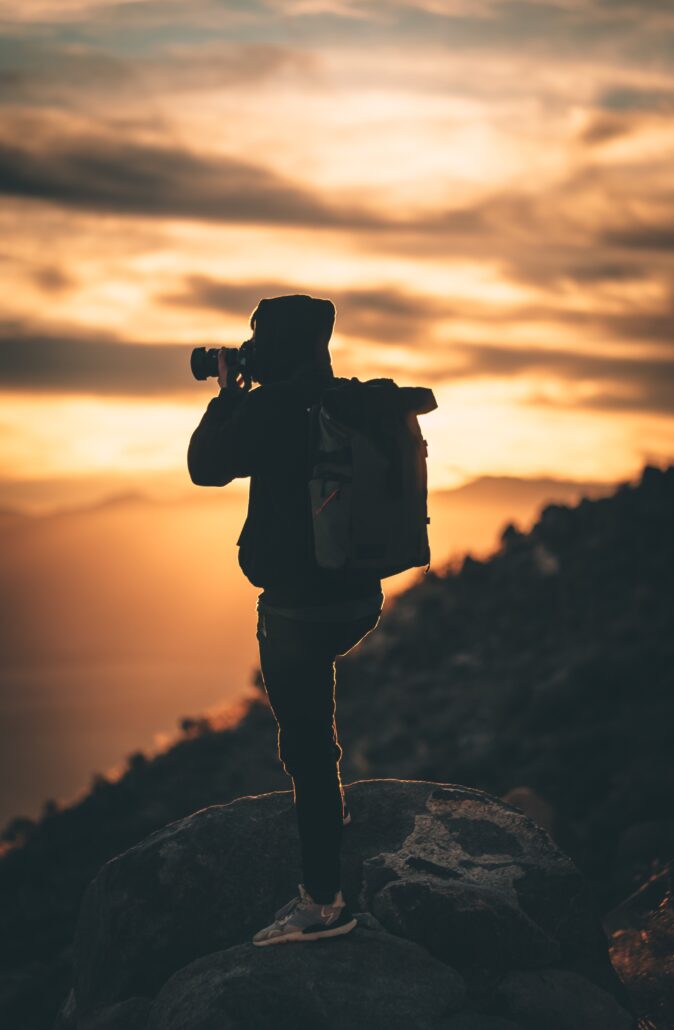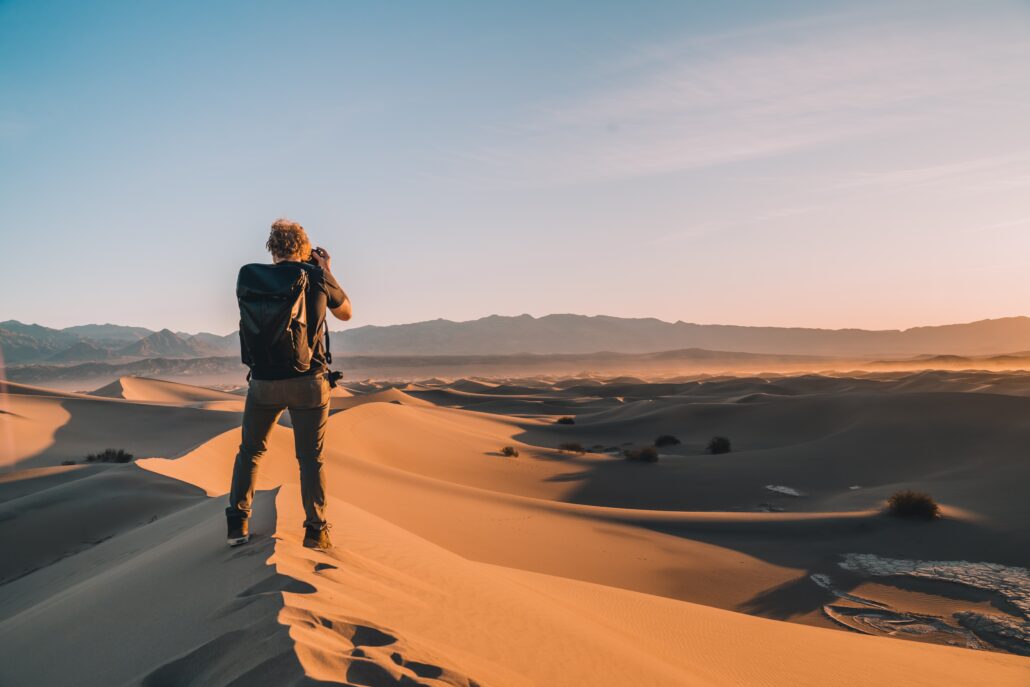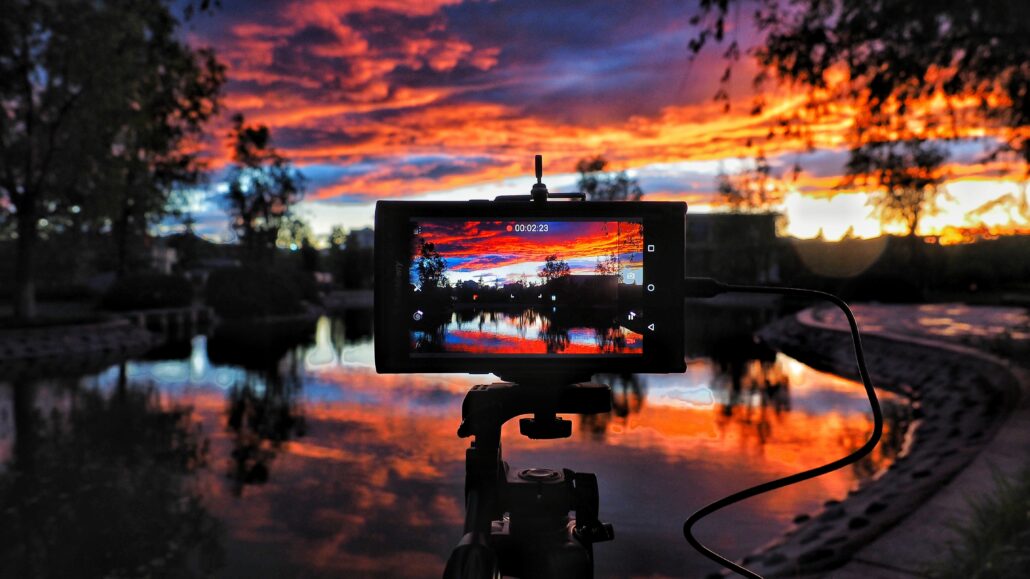
Introduction to photography classes and workshops
Photography is an art that has captivated people for generations. Capturing moments in time, preserving memories, and creating beautiful imagery can be a fulfilling and rewarding hobby or career.
Enrolling in a photography class or workshop can take your skills to the next level as an amateur photographer. With the advent of technology, online photography classes have become increasingly popular, making learning and improving your craft easier than ever. However, in-person photography workshops still have much to offer, especially for those looking to specialize in adventure, nature, or wildlife photography.
This article will explore the pros and cons of online photography classes and in-person photography workshops. We will also provide tips for choosing the best learning method for you and maximizing your photography education. Finally, we’ll discuss enhancing your photography skills through practice and networking.
Factors to consider when choosing a photography class or workshop
When deciding between an online photography class and an in-person photography workshop, there are several factors to consider.
First, you should assess your learning style. Do you prefer self-paced learning or thrive in a more structured environment? Online classes typically offer more flexibility, allowing you to learn at your own pace and schedule. In contrast, in-person workshops have set schedules and may require you to travel to a specific location.
Next, consider your budget. Online photography classes are often less expensive than in-person workshops. However, you may need to invest in additional equipment or software to fully participate in an online course. Additionally, consider the course content and focus. Are you interested in a general photography course, or do you have a specific genre in mind, such as adventure photography, nature photography, or wildlife photography?
Lastly, think about the level of interaction and networking opportunities you desire. For example, in-person workshops often provide more opportunities for hands-on learning and networking with fellow photographers. On the other hand, online classes may offer forums or discussion boards for students to interact and ask questions.
Tips for making the most of photography classes and workshops
Whether you choose an online photography class or an in-person photography workshop, making the most of your learning experience is essential. Here are some tips for getting the most out of your photography education:
- Engage with your instructor and fellow students. Ask questions, seek feedback, and participate in discussions. This will help you better understand the material and also help you build relationships with others who share your passion for photography.
- Practice, practice, practice. The more you practice, the more you’ll improve. Dedicate time outside of class to work on assignments or personal projects.
- Keep an open mind and be willing to learn from your mistakes. Photography is a creative endeavor, and being open to new ideas and techniques is essential.
- Seek out opportunities to network with other photographers. Whether it’s through in-person meetups, online forums, or social media, connecting with other photographers can provide valuable insight and support.

Balancing online and in-person learning for photography
For many amateur photographers, the ideal learning experience may involve a combination of online and in-person education. Online courses can provide a solid foundation of technical knowledge, while in-person workshops can offer hands-on experience and networking opportunities.
To achieve a balanced learning experience, consider enrolling in an online photography course that covers the basics and provides a solid foundation in camera operation, composition, and editing. Then, supplement your online learning with in-person workshops focusing on specific genres, such as adventure photography, nature photography, or wildlife photography. This approach allows you to learn at your own pace while still benefiting from the hands-on experience and networking opportunities that in-person workshops provide.
In-person photography workshops: Pros and cons
In-person photography workshops offer many benefits but also have some drawbacks. Let’s explore the pros and cons of attending an in-person photography workshop.
Pros
- Hands-on experience: In-person workshops often provide opportunities for hands-on learning, allowing you to practice techniques with guidance from experienced instructors.
- Networking: Workshops provide an excellent opportunity to network with fellow photographers, share experiences, and learn from each other.
- Access to specialized equipment: In-person workshops may provide access to specialized equipment or locations that may be difficult or expensive.
- Immersive learning: Traveling to a workshop location can offer an immersive learning experience, particularly for those specializing in adventure, nature, or wildlife photography.
Cons
- Cost: In-person workshops can be expensive, particularly if they involve travel and accommodations.
- Time commitment: Workshops often require a significant time commitment, including travel time and the duration of the workshop itself.
- Limited availability: Workshops may be limited or offered at inconvenient times, making it difficult for some people to attend.
Benefits of in-person photography workshops
Despite the potential drawbacks, there are several benefits to attending in-person photography workshops. Firstly, the hands-on experience and guidance from experienced instructors can be invaluable in improving your photography skills. Additionally, workshops provide an opportunity to network with other photographers, which can lead to friendships, collaborations, and valuable insights.
Furthermore, in-person workshops often provide access to specialized equipment or locations, particularly for those interested in adventure, nature, or wildlife photography. This access can allow you to practice your skills in unique and inspiring settings under the guidance of experienced professionals.

Tips for choosing the best photography class or workshop
With many options available, choosing a suitable photography class or workshop can be overwhelming. Here are some tips to help you make the best choice for your needs and interests:
- Determine your goals: What do you hope to achieve through your photography education? Are you looking to improve your technical skills, or do you want to specialize in a specific genre? Knowing your goals can help you narrow down your options.
- Research your options: Spend some time researching various courses and workshops. Read reviews, ask for recommendations, and consider the reputation of the instructor or organization offering the class.
- Consider your learning style: Consider whether you prefer self-paced learning or a more structured environment. This can help you decide between an online course or an in-person workshop.
- Assess the course content: Ensure the course or workshop aligns with your interests and goals. For example, if you are interested in adventure photography, look for a course that covers this genre specifically.
- Evaluate the cost: Consider your budget when choosing a photography class or workshop. While some options may seem expensive, their value in learning and networking opportunities may be worth the investment.
Nature Photography: choosing a suitable learning method
For those interested in nature photography, finding the right learning method is crucial to developing the skills necessary to capture stunning images of the natural world.
Online courses can provide an excellent introduction to the technical aspects of photography, such as camera operation, composition, and editing. However, for those looking to specialize in nature photography, in-person workshops can offer invaluable hands-on experience and access to unique locations.
When choosing a nature photography workshop, look for one led by an experienced nature or wildlife photographer. This will ensure you receive expert guidance and advice specific to your interest. Additionally, consider workshops that provide opportunities to practice your skills in various natural settings, such as forests, mountains, or coastal areas.
Enhancing your photography skills through practice and networking
Regardless of your chosen learning method, practicing your skills regularly and seeking networking opportunities with fellow photographers is essential. Joining photography clubs, attending meetups, or participating in online forums can help you connect with others who share your passion for photography. These connections can provide valuable insights, feedback, and support as you develop your skills.
In addition to networking, consider entering photography competitions or submitting your work to galleries and publications. This can help you gain exposure and establish a reputation within the photography community.
Conclusion: making the right choice for your photography journey
Ultimately, choosing between online photography classes and in-person photography workshops depends on your needs, goals, and preferences. By considering your learning style, budget, and desired level of interaction, you can make an informed decision that will best support your photography journey.
For many amateur photographers, combining online learning and in-person workshops may provide the ideal balance of technical knowledge and hands-on experience. By following the tips and advice in this article, you can make the most of your photography education and enhance your skills and creativity.
Remember, photography is a lifelong journey of learning and growth. By continuing to practice, network, and seek out new opportunities, you can continue to improve and develop your craft. Whether you choose online photography classes, in-person workshops, or both, the key is to stay curious, keep learning, and never stop exploring the world through your lens.
So, what are you waiting for? Start exploring your options and take the first step towards becoming the best photographer you can be. Check out our adventure retreat photography workshop’s schedule for 2023 and 2024 here, and reach out if you have any questions.